Star Trek’s Most Underrated Series Became Great By Ignoring Gene Roddenberry
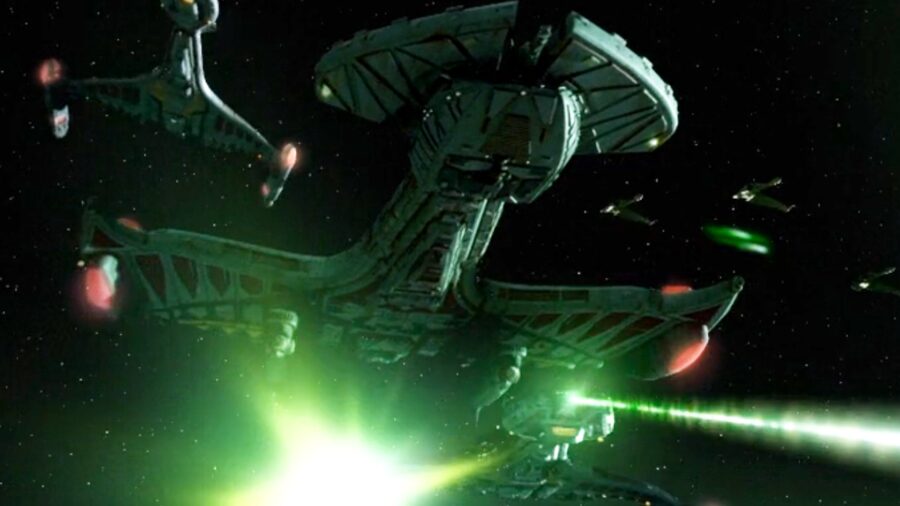
It took Star Trek: Deep Space Nine a few seasons to really find its footing, but it arguably hit its stride when the latter part of the series focused on the Dominion War. Before that, though, the show brought back the Klingons as antagonists, which was the perfect excuse to bring the fan-favorite character Worf into the new series. However, as Trek writer and future Battlestar Galactica showrunner Ronald D. Moore pointed out, bringing back the Klingons as franchise bad guys in DS9 meant ignoring one of the big rules established by Gene Roddenberry in The Next Generation.
Roddenberry Wanted Fans To Forget TOS
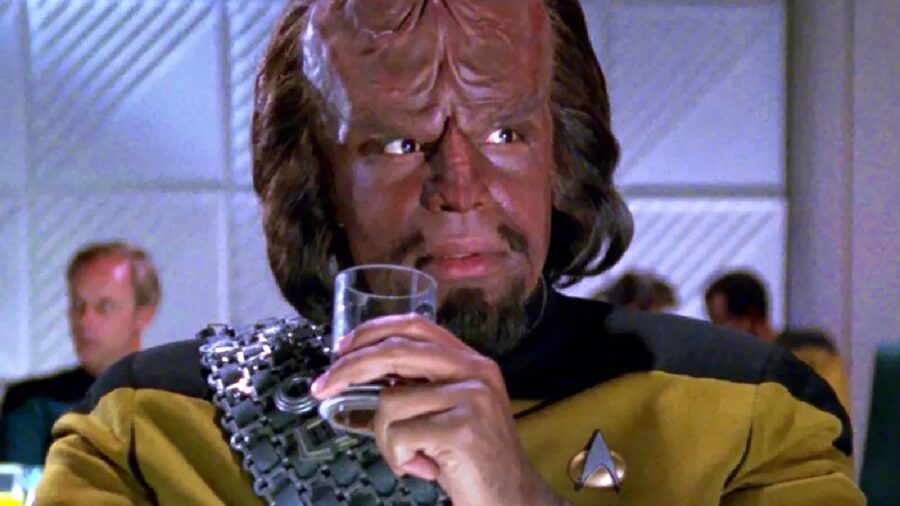
To understand the significance of DS9 making the Klingons bad guys again, we need to revisit one of Gene Roddenberry’s wilder ideas for The Next Generation. At first, he was obsessed that the new show should distance itself from The Original Series as much as possible, and he originally didn’t even want the Klingons (or the Romulans) to appear at all. He eventually relented because TNG writers wanted to put Worf in the show, and the franchise creator liked this character as a symbol of the peace that the Federation and Klingons now enjoyed.
The Klingons And Federation At Peace
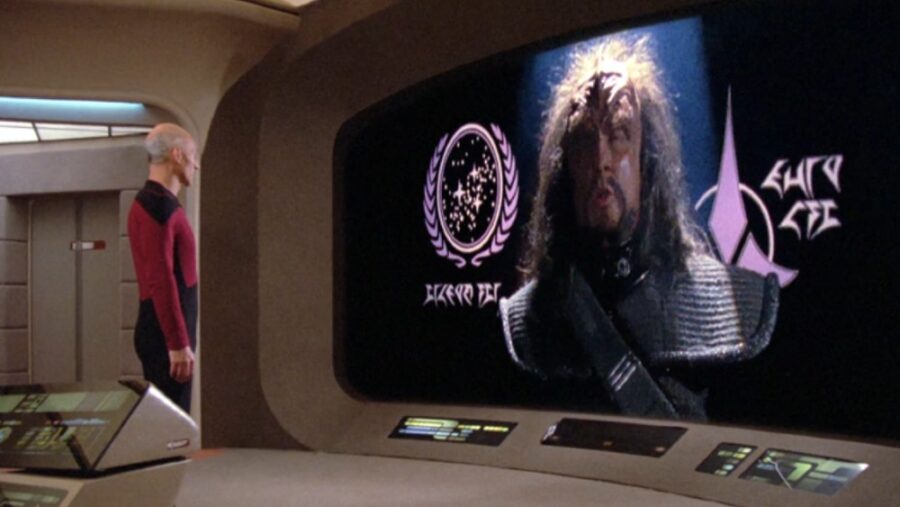
Long before DS9 was even conceived as a spinoff, Roddenberry was adamant that when the Klingons appeared (ideally very infrequently), they would be allies of the Federation. This idea had a rocky and confusing start: for example, a Klingon ship has a Federation insignia in the episode “Heart of Glory,” and another season two episode, “Samaritan Snare,” claims that the Klingons are officially part of the Federation. Later episodes would clarify that the Klingons simply had a peace treaty with the Federation, and in Star Trek VI: The Undiscovered Country, we’d learn more about the events that paved the way for such a historic treaty.
No Slugging It Out With Klingons
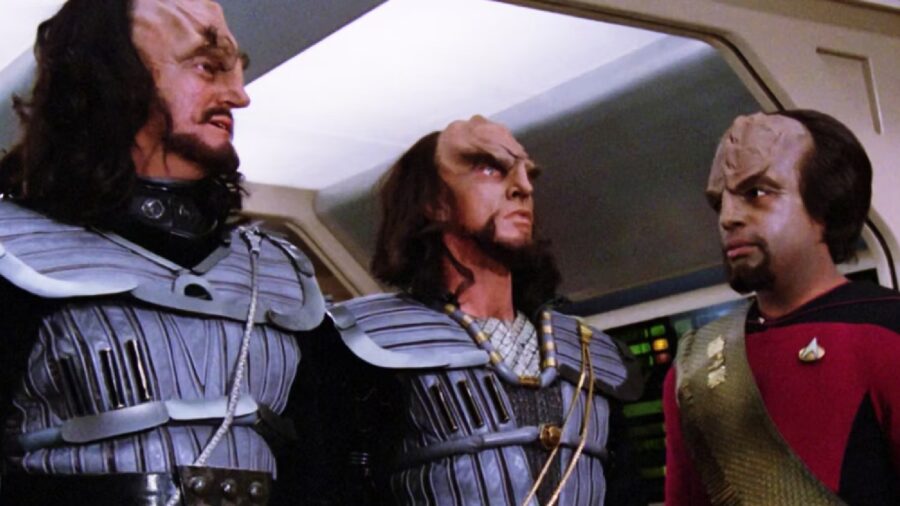
Certainly, showing Star Trek’s fiercest enemies turned into allies spoke to the franchise values of peace, diplomacy, and understanding. At the same time, however, it severely limited the kinds of stories that the writers could tell. The Next Generation was already a show where Roddenberry forbade our heroes from having any kind of interpersonal conflicts, and his rules for the Klingons meant they couldn’t even clash with the most famous baddies in Star Trek history.
Giving Them Back Their Fangs
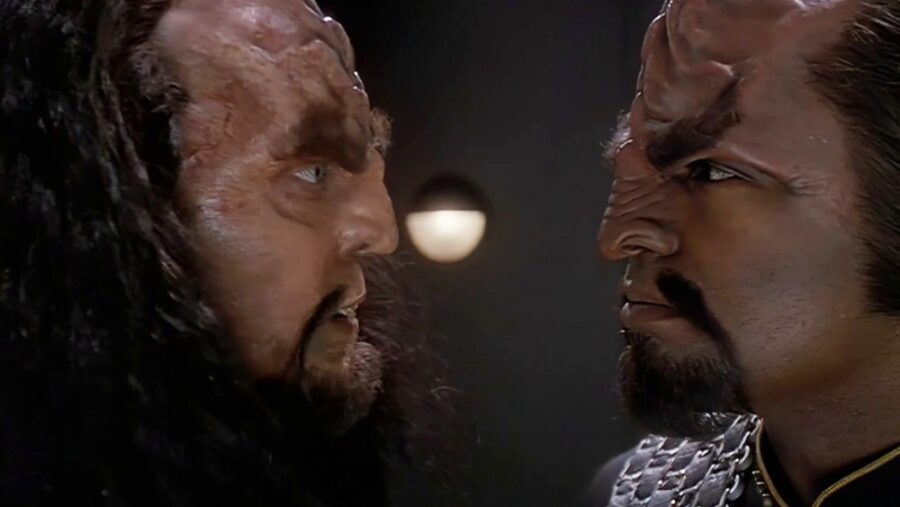
When DS9 decided to effectively ignore Roddenberry’s rules and (temporarily) transform the Klingons into bad guys again, writer Ronald D. Moore thought it was a great idea. He later claimed that TNG “defanged” these aliens, forcing the writers into a box where the only Klingon stories they could tell involved Worf’s family and internal Imperial politics. Moore was always a Star Trek fan as much as he was a writer, and in his considered opinion, the Klingons are “just great villains” who are “worthy adversaries and very interesting.”
The Way Of The Warrior Proved Moore Right
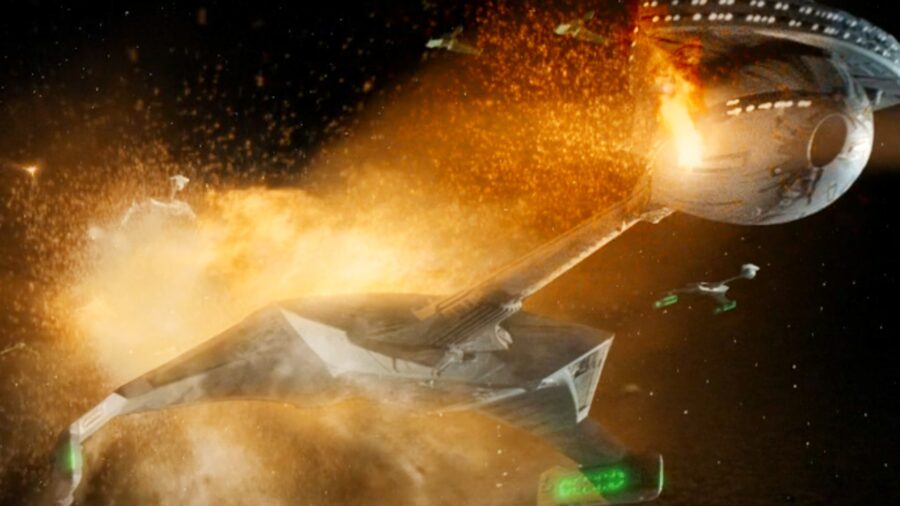
The same DS9 episode that brought Worf into the show and made the Klingons enemies again, “The Way of the Warrior,” almost instantly proved how wise it was to ditch Roddenberry’s restrictive rules. Klingon Chancellor Gowron, who had mostly been a colorfully grumpy character in TNG and one previous episode of DS9, suddenly found new life as a mustache-twirling villain, the perfect foil to the mostly strait-laced Captain Sisko. Meanwhile, Deep Space Nine as a show found new life as well, and the constant threat of attack from the Klingons helped underscore the darker turn this already dark spinoff had taken.
Later Series Learned From DS9
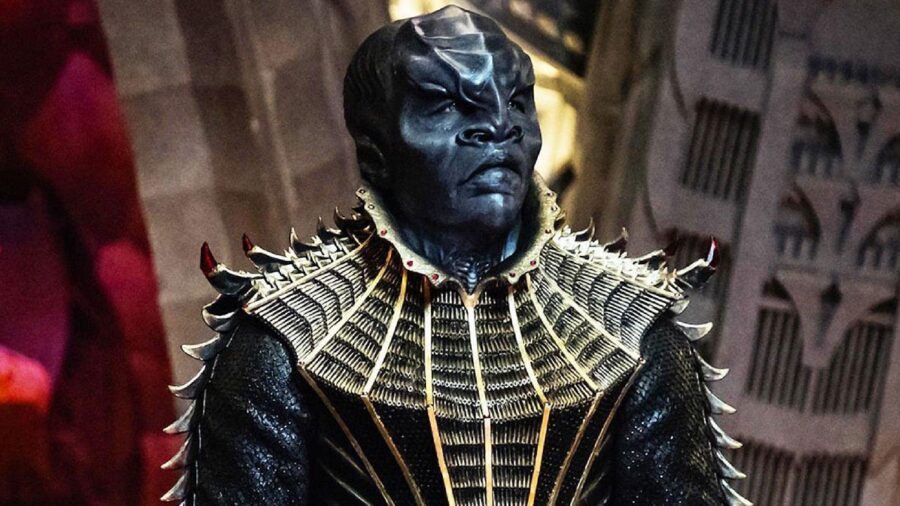
Later episodes showed how the Klingons renewed their treaty with the Federation in order to fight the Dominion as a united front. In this way, you could say DS9 eventually returned things to the Roddenberry status quo, but this didn’t keep the future writers of Enterprise and Discovery from making the Klingons into dangerous foes once again. Moore was completely right: these honor-driven warriors really are “great villains,” and the truth is that TNG had simply squandered the chance to regularly pit Picard (like Kirk before him) against such implacable foes.













